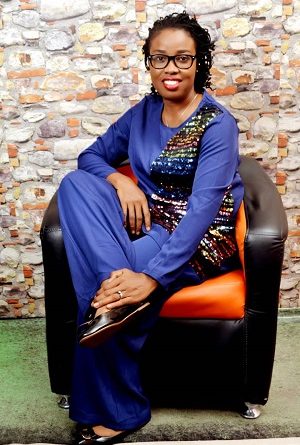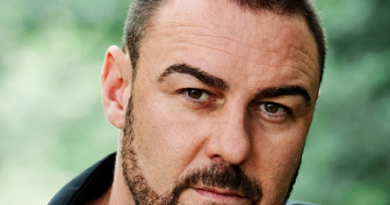INTERVIEW WITH EBEHI IGHO IMONLEGA
We’ve had the opportunity to work with many talented authors through Black Tower Publishers, and today we present Ebehi Igho Imonlega. She is a Nigerian writer of novels, short stories and songs. We had the opportunity to sit down with her and discuss a few things, including her books and other projects she’s working on.
- We read your book and it was simply breathtaking!
Oh! Really? Thanks.
- Now tell us, how did you begin writing? Did you ever dream of becoming a novelist or you had a specific reason for writing Evenfall.
I learnt to read quite early. My father habitually lent his children novels from his library after we had filled forms in which we promised to take proper care of his books. I grew up attaching a lot of importance to stories. Soon, I learnt to turn spectacular experiences into written forms. I relied on my imaginations to fill in the aspects I hadn’t witnessed personally or understood completely. One of such was the attempted murder of a new born baby by his mother a few houses away from mine. Then, I was a little girl of about twelve. I documented the story and every other such story in an attempt to preserve them, hoping to tell them someday. Today, I am certain that in a way, the experience of the attempted murder of the infant by his mother many years ago found expression in my Lost in a Wild Sea. In an old luggage in my room were lots of stories written haphazardly and in different notepads which I guided jealously whenever my family was to relocate to another house. Everything I did then was passive. I never consciously thought I would ever take writing up as a career, because for many years, it was impossible for me to complete any of the experiences I had translated into stories in different notepads in my room. My first conscious attempt at authorship came with Evenfall.
- Many authors reflect their personal experiences in their works of fiction. Do Evenfall and Lost in a Wild Sea retell what you or someone you know experienced?
Someone once asked whether I was `Omonye’ – the protagonist of Evenfall. (Laughs) Evenfall is not the story of my life in any way. Lost in a Wild Sea isn’t either. Otherwise, they would have fallen under the category of biographies. Both stories, especially my more recent one, Lost in a Wild Sea, are strictly products of my imagination. However, literature reflects human experiences and the writer as a social being naturally and unwittingly reenacts human experiences based on his coexistence and interaction with other people. As a member of the management staff in a private school for instance, I often come across young women whose children have backlogs of school fees unpaid although the patriarchs of their families reside overseas. Then, I began to wonder what the purpose of marriage was, if a couple had to live apart, often for many years while the family left behind continue to suffer the economic hardship for which one of the caregivers had to go away in the first place. In Edo State where I come from, travelling overseas is considered the gateway to financial success. Families, properties, relationships, businesses and even education are often traded for an opportunity to travel overseas. The continuous absence of a married person at the detriment of the family is a rising plague that should be addressed to save our society. Story telling is my own way of lending a voice to the issues of concern in our society.
- Tell us more about your writing. How many hours a day do you devote to writing?
I don’t have specific number of hours I devote to writing per day. I don’t write every day. To begin with, the bulk of what ends up on my papers as stories takes place in my head. I go usually about my daily activities, writing my stories in my head. When the time is eventually ripe to transfer my ideas, I often have to steal time out of my busy schedule as a classroom teacher and an administrative staff, to write. Then at night, when members of my family have retired to bed, I write and write. (Laughs) Once, when a loved one called me at the dead of night, she was surprised that I was up, writing, “You should be in bed, sleeping,” she said. “Must you stay up so late to write? Are you hungry?” she complained in quick succession, and I laughed. Also, on a few occasions since I began to write actively, I have had to go for a two to three days marathon writing retreat. In all, I think when one has the passion to write, he maximizes every opportunity that comes his way.
- Do you write a draft on paper or you work with a keyboard (typewriter or computer)?
I hardly ever write on papers. I did that when I was much younger. Then, I hadn’t learnt to type. Now, I think my aversion for scribbling contributed a great deal to my inability to complete any story in the past.
- Any writing rituals?
Not exactly. For now, I don’t have many published books, but I can tell by my experiences with Evenfall and Lost in a Wild Sea that the style I choose to adopt in a particular story depends to some extent on the peculiarity of the subject matter, plot and characters of the story. However, I have observed that all my writings so far begin with a story line in my head, which may or may not be complete at the onset of my writing. As I progress, a lot of ideas begin to flood my mind and I become desperate to key them into my laptop. At such times, I go everywhere with my laptop. I could go on and on to write, only to find myself putting everything aside and starting afresh in a different way. Often though, I find myself revisiting those parts I had discarded earlier and chipping aspects of them here and there as the story progresses.
- When you published Evenfall, you said your next novel would be, Sisters’ Plight. Now, what we have is Lost in a Wild Sea. What happened? Should we continue to wait for Sister’s Plight, or it is the same story with a different title.
It’s a pity I had to disappoint my ardent followers. Getting apt titles is one of the major challenges in creative writing. Evenfall first began as A Golden Sunset, Twilight, and then, Evenfall. My Second novel started also as Sister’s Plight, God is not a Civilian, Against the Wall, and finally as Lost in a Wild Sea. I have come to realize that titles evolve with stories. In future, I would try to avoid changing a title I already propagated.
- How hard is it to establish and maintain a career in fiction writing?
It is one thing to begin a career in fiction writing and another to keep at it. One of the major challenges of a writer is getting a publishing house to accept him. A lot of people give up altogether after receiving series of rejections from publishing houses that hardly ever appraise manuscripts properly. Ideally, a writer shouldn’t in addition to the rigorous process of story writing be burdened also with the rigours of publishing, distribution and marketing. Every good writer has a message that cuts across boundaries. In other words, although settings, plots, characters and styles of writing differ, all good stories have subject matters that are universally applicable. Every writer therefore aims to have his story spread across national borders. Getting a lot of people to see and appreciate your work as a new writer is a major challenge. The reason for this is that the writer lacks the professionalism and resources needed for book distribution and marketing, unlike the traditional publishing firm.
- Where do you see yourself and your writings ten years from now?
Like I said earlier, authors usually hope to have huge audiences across continental boundaries. I am not different. Within me lie a lot of aspirations in my writing career in the next decade. Nevertheless, I am mortal. For us mortals, a lot of things are determined by powers beyond us. Therefore, I’ll rather like the psalmist simply say, ‘I lift up my eyes to the hills from whence cometh my help’.
- What writing advice would you give to aspiring writers?
After a lot of futile attempts at getting a publisher for Evenfall, I had decided to travel overseas to study creative writing in order to meet people of same passion. During my interview with the University I was to have attended in New York, I discovered that to be admitted into the school of creative writing, one must demonstrate one’s natural skill at writing since nobody learns how to write through instruction. Consequently, my advice to anyone aspiring to be a writer is for him to first ascertain whether or not he has the passion to write since creative writing is more of inspiration than perspiration. Once the aspiring writer convinces himself that he has the talent, he should continue to write, regardless of all the challenges that go with getting people to see and appreciate written stories. Someday, I believe the divine inspiration to be that most needed voice to that unique story the world is waiting to hear would show up.
- Any last thoughts for our readers?
It is unfortunate that a lot of people especially from our part of the world hardly ever read books except when they must, for commercial or examination purposes especially. Reading in not just entertaining; it is informative also. Create time to read. One of the easiest ways to widen your horizon is to read and read. Besides, the more you read, the more vocabulary you would acquire.




